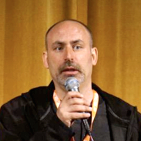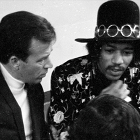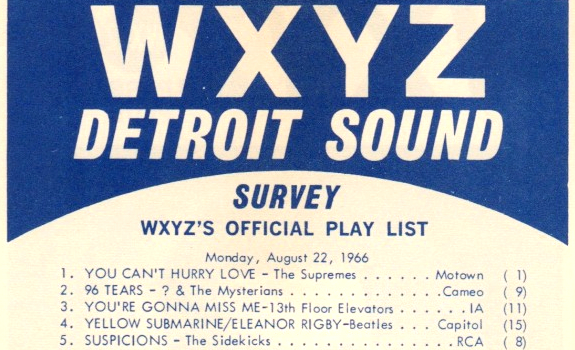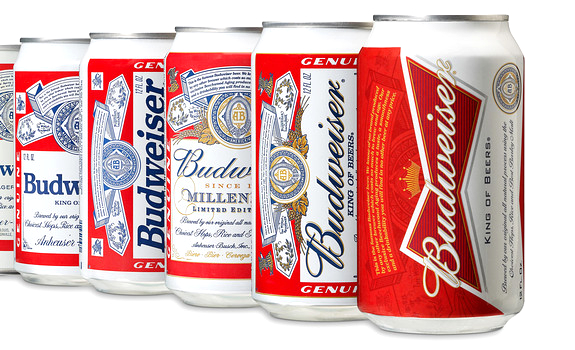I Am What I Play, a movie about the heyday of rock radio, shows that digital platforms offer new perspectives for radio personalities on a mission for music curation.
Radio formats are tighter than they used to be, and US radio changed even more since ownership limitations ended in 1996 and Wall Street banks got involved. From voiceover entrepreneur and movie producer Roger King comes a hopeful story about creative disc jockeys that look beyond FM to reach an audience. “There are still ways to do a show instead of a shift.”
“I’ve always loved DJ stories from the heyday of rock radio”
Show your true personality
Why did you make this movie?
“I was born in Detroit, where I lived for the first 9 years of my life. My dad worked in radio as a newscaster. It was interesting to wake up and getting the news from my dad! My mom worked in radio as well. It’s where they met, so I guess radio is in my blood.” King grew up in the late 1960s and early 70s, listening to rock ‘n roll stations like WXYZ, WJLB and legendary CKLW, broadcasting from a studio in Windsor, Canada, just across the Detroit River. Now based in Toronto, where he owns a voice agency, he represents many radio people who combine their on-air work with doing voiceovers. He also has connections to the film industry, and then got the idea to make a movie about radio. “I’ve always loved DJ stories from the heyday of rock radio, and thought: we’ve got to tell some stories about an era when they still had freedom to play what they want and say what they want.” Instead of covering a complete history of rock radio, he’s focused on 4 personalities from 4 cities. “They’ve had to have interesting lives with some ups & downs and be a real character, rather than just a disc jockey who worked was at the same station for 30 years.”
 Be a non-steady jock
Be a non-steady jock
Have you been a radio guy yourself?
“Yeah, I graduated from a radio & TV university program in Toronto, and got a radio job outside the city just after my graduation. I was on air during evenings and overnights.” After some other gigs, he went into the voiceover business, as radio didn’t offer him that much creativity. “I wanted to do what I wanted to do, and therefore do more than time & weather updates.”
Collect creativity bargaining chips
“I desired freedom. Just like the people in the movie. I think that their stories are quite symbolic, and representative of the profession of a radio DJ. They take us through radio history up to the present day. Everyone knows what’s happened over the last decades, where big companies are trying to control the music and the message. I didn’t want to get too heavy-handed, though.” Roger King finds it interesting that these 4 personalities have always found ways to build leverage to enforce creative freedom throughout their career, and that “they are not even afraid to quit their radio gig if they don’t get to do what they want”. Meg Griffin is the only one who’s still on a (satellite) radio channel, hosting a daily show on Sirius XM. David Marsden does two shows a week on his streaming site, Charles Laquidara launched a TuneIn station, and Pat O’Day now runs a real estate business.
“Popularity doesn’t equal quality”
Introduce listeners to music
What do you think when you’re listening to the radio today, as compared to the 60s and 70s?
“There are still some deejays and stations maintaining the role of being a curator of music. Especially in this day and age, we need more of them; we don’t have the time to filter all new music that’s coming out every week. Certainly college radio still has that spirit of independence, and a lot of podcasts still have that what made radio unique.” Overall, he thinks that radio lacks enough personalities who are allowed to do compelling things and play interesting songs: “It’s very programmed and quite rigid. In North America, whatever city I’m in, the Classic Rock station will sound the same; the Top 40 station will sound the same; it’ll be cookie-cutter. Even though I represent many people in radio with my voice agency, I don’t spend much time listening to it, because it’s not even the place to go to for new music. I feel like my generation is one of the last that has that connection to radio – probably one of the last that even owns a radio!”
 Immerse in pop culture
Immerse in pop culture
King expects that young people will still respond to elements that make radio great, like personalities who have an interesting story to tell and seem to have a finger on the pulse of what’s happening music-wise. It will just happen on new platforms: “I don’t think that terrestrial radio, other than some of these Indie and college stations, is that relevant to the younger generation; they don’t have any connection to it that I can see.”
Play some spice songs
Freedom vs. format is the classic ‘creative talent vs. rational PD’ battle. But if establishing & meeting positive listener expectations is driving & increasing radio station ratings, do you think freeform radio is still relevant in competitive markets like New York or Toronto?
“I am not sure I believe that radio ratings are increasing – my sense is there’s a lot of questions about current ratings – but even accepting that premise, I would say simply that popularity doesn’t equal quality. Budweiser is the biggest selling beer in the world. I rest my case. It is true for the most part that when you make something more palatable to the masses, you lose at least some of the quality and uniqueness. Now this is not to say that stations don’t need to have a format. Listeners definitely like a certain predictability. You don’t want a DJ going off and playing nothing but obscure songs. A good disc jockey knows how to put together the right mix of hit songs and lesser-known tunes in a seamless and creative way. I think a disc jockey could command a significant audience if given the freedom to do so.”
“There are still ways to do a show instead of a shift”
Create a good flow
Even if many stations do voicetracking, most of them still do a lot of live broadcasting during primetime. So in case radio (or elements of it) will move to digital platforms and recorded forms like podcasts, what’s going to happen with radio’s powerful in-the-moment presence and a listener’s feeling that, right now, someone is keeping him company?
“I think people always like curators and deejays; they want someone else to pick music for them in some way or another. Presenters can build up credibility, where listeners say: this woman or man really knows music.” Roger King explains that, while we can all put our iTunes on shuffle, we’re also looking for music discovery. He feels like good music scheduling is an art. “In the film, you definitely see that these disc jockeys treat it like an art form, being able to string a series of songs together in an interesting way; knowing what flows.”
 Be a go-to person
Be a go-to person
What’s one of the most remarkable stories they’ve had to share?
“Pat O’Day from Seattle was also a concert promoter. In the early 1970s, he was repping Jimi Hendrix, Led Zeppelin and Elvis, all at once. When Hendrix dies in London, Pat gets a call from Jimi’s dad, who is wondering what’s going on with the body.” Because he’s become a local music authority, O’Day eventually organizes the rock star’s entire funeral:
[audio:http://www.radioiloveit.com/wp-content/uploads/roger-king-american-radio-dj-movie-i-am-what-i-play-interview-01.mp3|titles=Roger King describes a scene in the radio movie I Am What I Play]
Don’t fill an airshift
What’s your personal takeaway from the movie? What was your own insight or ‘aha moment’?
“One of the people in the film says: in this heyday of rock radio, it wasn’t a shift; it was a show. These people were not like: I’m on from 7 till 11; they were approaching it like: I’m doing a show every night. That’s what I realized as we were going along: what we’re really showing here is how radio went from show to shift.” In King’s opinion, “corporate control” has turned creative radio into “very programmed, rigid broadcasts”. But there’s also a positive message: “We tried to demonstrate that there are still ways to do a show instead of a shift. I think most people would respond well to original voices, saying and playing original things. That’s why you have the exploding world of podcasts. People always want to hear good stories, told in a creative and unpredictable way. And the music goes right along with that!”
“Radio was the first thing you turned on”
Enjoy watching this movie
The film is named after a David Bowie song called D.J., of which the lyrics include the line: I am a DJ, I am what I play. Being a Classic Rock fan himself – loving music by the Beatles, Rolling Stones, Led Zeppelin, Neil Young, Bob Dylan and the like – he complied a playlist reflecting a period from the early 1960s to the late 80s. “It was a time when DJs were really a part of pop culture, and could make or break artists. Radio was the first thing you turned on.” The film features music by Joni Mitchell, The Cars and The Ramones, as well as Bowie’s title song. I Am What I Play was the opening of the Boston Film Festival, and was featured during the Canadian Music Week, and will be shown during Radiodays Europe 2016. There are plans for TV broadcast and digital release. For more info, visit www.iamwhatiplaythemovie.com and bookmark our list with radio movies.








Add Your Comment